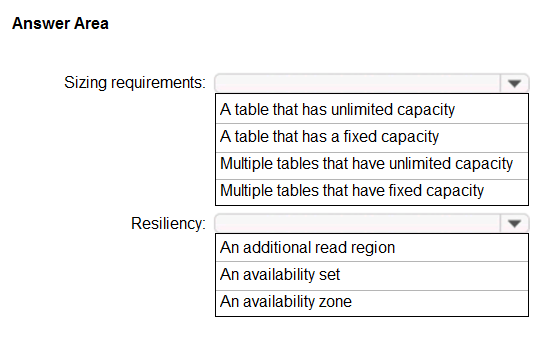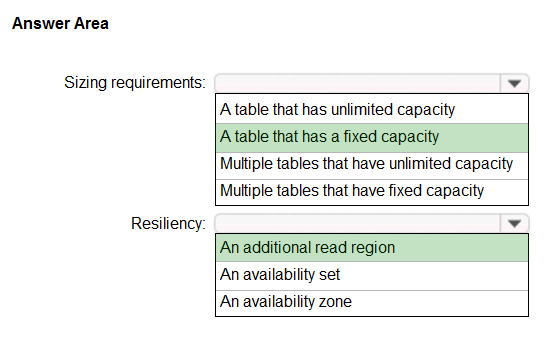

HOTSPOT -
You need to recommend a solution for the data store of the historical transaction query system.
What should you include in the recommendation? To answer, select the appropriate options in the answer area.
NOTE: Each correct selection is worth one point.
Hot Area:

xAlx
Highly Voted 4 years, 4 months agostudent22
3 years, 6 months agosalehz
Highly Voted 4 years, 4 months agosreejayan
4 years, 2 months agosreejayan
4 years, 2 months agolevo017
4 years, 2 months agolevo017
4 years, 2 months agoAberdeenAngus
2 years, 11 months agosoren
4 years agordemontis
3 years, 5 months ago[Removed]
Most Recent 3 years, 4 months agostudent22
3 years, 6 months agowaqas
3 years, 7 months agosyu31svc
3 years, 7 months agoleo_az300
3 years, 7 months agonkv
3 years, 7 months agoaddam23
3 years, 8 months agobigngster
3 years, 8 months agopentium75
3 years, 8 months agohenry1985
3 years, 9 months agohenry1985
3 years, 9 months agopentium75
3 years, 8 months agoGetulioJr
3 years, 10 months agopentium75
3 years, 8 months agoashishg2105
3 years, 11 months agomactone
3 years, 11 months agopentium75
3 years, 8 months agojank
4 years, 2 months agoBlaaa
4 years, 3 months agowgre
4 years, 4 months ago